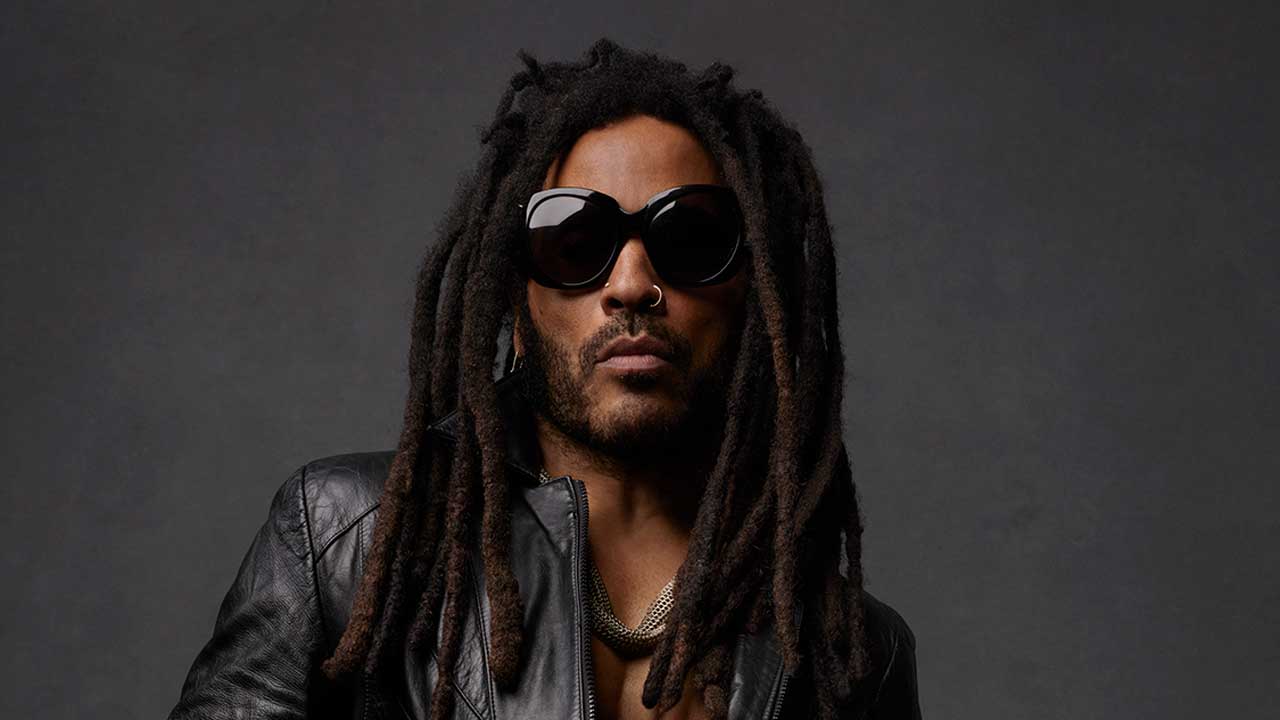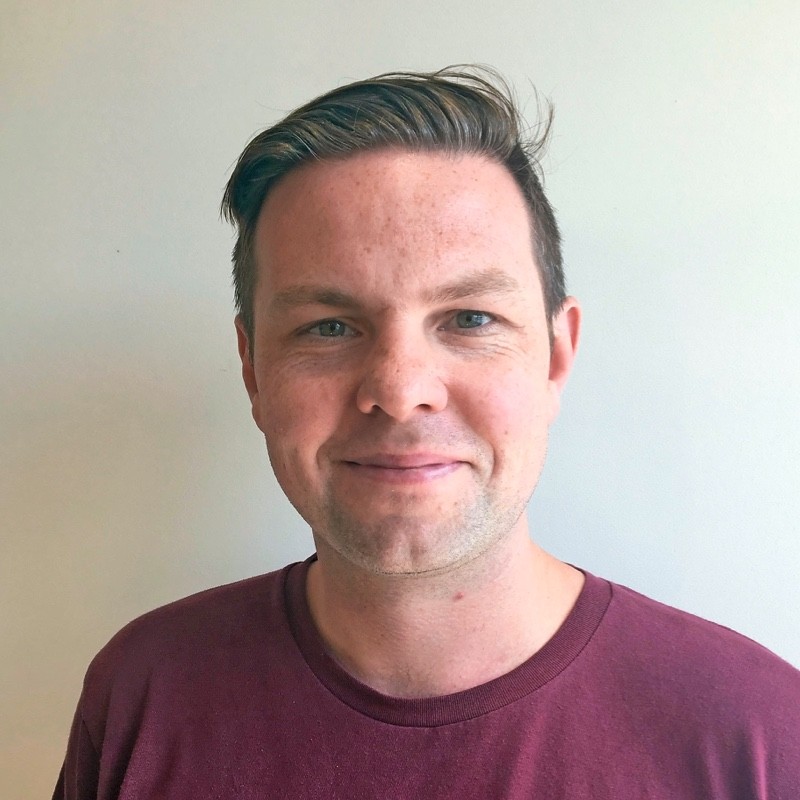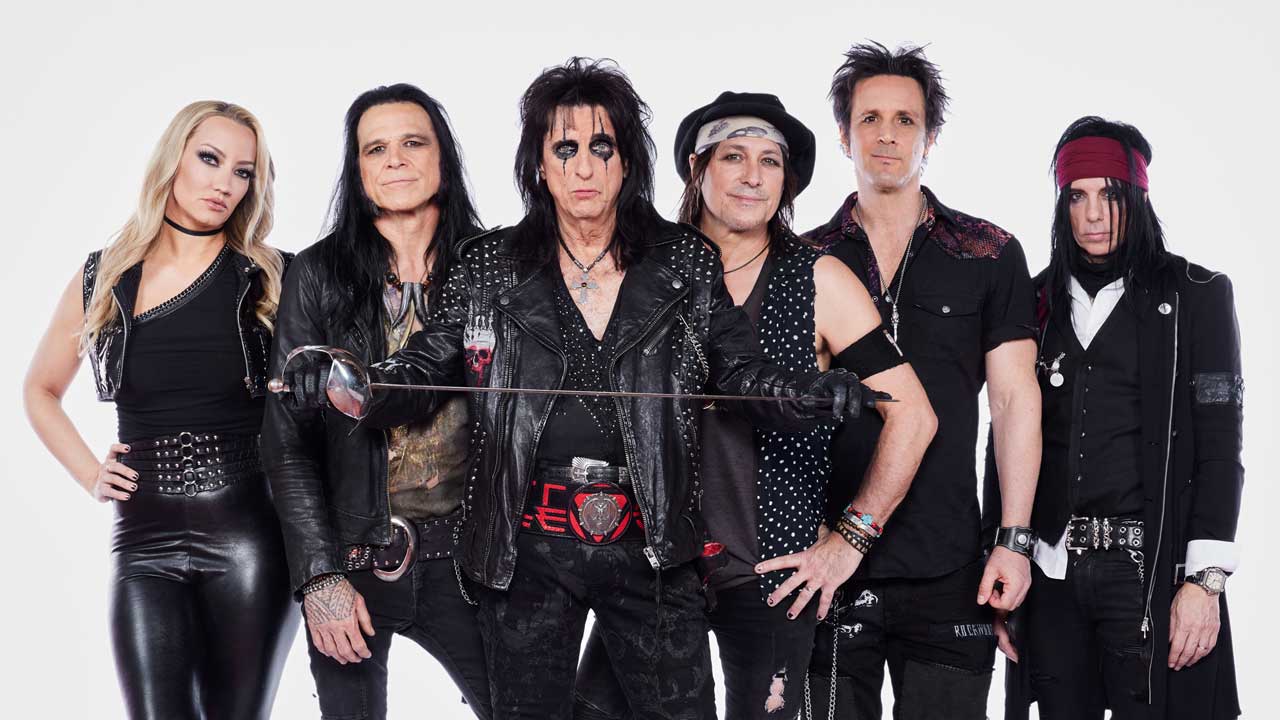"Robert Plant ripped into me and tore me apart. He was yelling at me like he was my dad or something!": Lenny Kravitz looks back on a career filled with his heroes
From aspiring band guy to multi-faceted solo superstar, Lenny Kravitz has worked with some of rock’s greatest. On his new album, he’s revisiting his youth

Lenny Kravitz says that when you’ve had a career stretching over three and a half decades, you learn to accept that your fortunes will shift every now and then. “The surf changes,” says the singer, guitarist and producer (and actor, fashion designer, author and design mogul), aptly looking out over the Pacific from his pad in Malibu, Los Angeles on a slightly gloomy February morning. “You’re riding little waves, then you’re riding moderate waves, then, oh wow, you’ve caught a huge one. Throughout a career of thirty-five years it goes up, down, every which direction.”
It has been a life of forward-facing restlessness for the now 59-year-old Kravitz, who emerged with the swaggering soul-funk of Let Love Rule in 1989, and went supernova with the jubilant rock’n’roll grooves of his third album, 1993’s Are You Gonna Go My Way.
There has been little room for glancing back over eight records since, but Kravitz found himself in contemplative mood while making Blue Electric Light, his twelfth album (out on May 24). Prompted by the experience of revisiting his youth for his 2020 memoir, also titled Let Love Rule, it sees Kravitz imbue his sound with the synth-pop flourishes he obsessed over as a teen. Recorded at his studio in the Bahamas, the country where he normally resides, it captures Kravitz savouring what he sees as another big momentum shift on the horizon.
“I feel as though I’m back in that magnitude of a wave and I’m enjoying every moment, because I did not take it in the first time,” he says. Life is good, he says, settling in for a career-spanning chat with Classic Rock. And why wouldn’t it be? He’s Lenny Kravitz.

Where was your head at when you started working on Blue Electric Light?
This record very much reflects my musical expression at the time I was in high school, and I think that’s because I had written a book [Let Love Rule]. In this book I spent a lot of time going through my teenage years. It’s not a time I spent a lot of time thinking about or reminiscing on, and I went back and thought about how I was making music then, the way I was doing it. There’s even two songs on the record, Bundle Of Joy and Heaven, that are from that time. So it’s a real celebration of right now and that time.
What was it like getting back in touch with high school?
Sign up below to get the latest from Classic Rock, plus exclusive special offers, direct to your inbox!
It was great, it was fun, and that’s something I appreciate. It took me back to that time. All the other songs are new, but with those two songs I was transcribing off of a really bad cassette that sounded like shit. It was hard to listen to because it was muffly, warbly. It was an old cassette. But I studied it.
Where had the cassette been sitting all these years?
It had been lost. A friend of mine found it because I’d given him one back in the day and he found it. So it was all meant to be. The fact it was found after a million years and sent to me was very cool.
Who were your main influences at the time you made that old demo?
In high school, Bowie, Prince, a lot of the eighties stuff, The Police, Rick James.
And to think that within a few years, some of those artists went from being your heroes to being collaborators.
Yeah. Interestingly enough, I was fortunate enough to work with Michael Jackson, work with Bowie, work with Prince.
When you look back to that initial burst of success, what are the first things that come to mind?
I’m extremely grateful. I wanted to make music badly from the time I was a child. It was never about stardom, it was about making music. I never imagined being the frontman, I was always cool being the guitar player or the drummer or the bass player. I was not the lead singer in any of the groups or things I was doing during that time, I was the guy next to the guy.
I didn’t want to be a solo artist, I wanted to be in a band, I wanted to have other people there, I wanted to have this experience in the studio that I’d seen in documentaries about bands that looked so much fun. The fact I ended up doing this primarily by myself, and not having that experience, and being the lead singer and the frontman and it worked, was amazing to me.
When did you accept: “Oh, right, looks like I’m a solo artist, then”?
Let Love Rule, that was it. Before that, man, I was doing things, making demos, in some different bands, but I was hopping round from project to project. In fact I was in a band – and it was my first time being the lead singer – that was offered a deal. But Let Love Rule had just come to me and I had to turn it down. I told them I couldn’t do it. I didn’t have a record deal, but I’d found my sound and I was committing to doing that – giving up money or opportunity for success. I always did that, always followed my gut.
Where did that ability to take a leap of faith come from?
I have no idea. Because think about it – I’m a teenager on the lot of A&M Records, and I’m being offered a deal, but they’re telling me that I have to change my music, and they’re gonna give me all this money and “You’re gonna go to Europe!” and “You’re gonna make a record” and “You’re gonna be a star!” blah blah blah, and I’m going along with it. But then when it got time to sign the deal, I had this uncomfortable feeling inside of me.
I felt like an animal trapped in a corner – you’re either gonna get taken over, killed and devoured, or you’re gonna fight and find your way out of that corner. My way out was running. I needed this, but my soul wouldn’t allow me to do it because it knew that something was coming before I knew that something was coming. If I had taken those deals at that time, I guarantee I would not be sitting talking to you right now.
When did you feel vindicated?
After the first two or three albums. When I made Let Love Rule, I didn’t know I was going to make another one. A lot of people come out with one album and then they go away, or they put out a second one and it flopped and then you’re done. But I guess after Are You Gonna Go My Way I was like: “Wow, this is really happening.”
At that point it felt like one of those rare meteoric rises that happens to only a few artists each decade. What was it like being in the middle of it all?
It was magic. It was like being in the middle of a storm. Things were crazy, everything was spinning around me. I was all over the place. I was a kid in the middle of all this madness. But the creativity always came first, the record making, the touring. That was always what was important to me. And the whole circus of a life was happening around me by virtue of being successful. There was a lot going on.
In 1993 alone you collaborated with Mick Jagger, David Bowie, John Paul Jones and Curtis Mayfield, among others. Why do you think you were embraced by so many of your heroes?
I’m grateful for that. I fought the critics for years. Not that it’s about what the critics think, but I got it pretty hard. But at the same time, whether it’s Michael Jackson or Prince or Curtis Mayfield or Eric Clapton or Robert Plant, they all wanted to hang out, they all wanted to go on tour or come on stage and jam or go into the studio, or whatever, the folks that educated me and gave me inspiration all showed up. It was very strange.
Who gave you the best advice?
Robert Plant. He opened for me in 1993. He’d put out a solo record and he wanted to expose himself to a younger audience, and he chose me. This obviously didn’t come from me! So he came on the tour. And Led Zeppelin means everything to me, Robert means everything to me, as a voice, as a writer, as a force. We became friendly. During this time I was very serious. Sound is very important to me, and when the sound is not right it drives me mad.
I was doing a soundcheck, and I guess I was in a bit of a mood because I didn’t like the way the stage sounded that night, and Robert ripped into me and tore me apart, basically saying: “The fuck is wrong with you? You’re in the middle of this great success, you have this music, you’re having a great run and you should be enjoying every moment. Let go, relax!” He was yelling at me like he was my older brother or my dad or something!
It freaked me out and I was a little embarrassed. Here was one my heroes telling me what a bitch I’m being. But it was the most beautiful thing, because he’s a real guy and he saw me in this wonderful place that he’s been, and he said: “You better fucking wake up and enjoy this and have fun.” And that turned me around. We’ve been great friends ever since.
Well if you’re going to be told off by someone, it might as well be Robert Plant. Later in your career you did a song with Michael Jackson, and got Dave Grohl to drum. Dave later told Classic Rock he couldn’t recognise himself on the finished track.
He’s in there! He and I had a whole thing about that, because he thought he wasn’t in there as loud as he should have been. I mixed it in the way I know Michael would’ve done with the samples and the drums. Michael was working on the Invincible album at that time and called me in to do a track. I cut the track at Marvin Gaye’s studio in LA, and Michael loved working there.
Michael showed up and had me teach him the song and produce him, and it was really surreal to be in there with the actual one person that started this whole thing for me as a child. I went to see the Jackson 5 when I was six years old, and here I am with him, teaching him my song and telling him how to do it. He said: “You stop me every time I don’t do it the way I intended it.”
We had fun. He was so human. We laughed a lot. Later, I’d sent it to Grohl to add some real drums to the samples, which I put in there and which sound great. I’m not happy the song ended up on [posthumous 2010 release] Michael. There was a lot of bullshit on that album. But it’s a song and a memory that is very meaningful to me.
Looking back across your career, what’s your proudest achievement?
The success and life of my daughter [Batman and Mad Max: Fury Road actor and model Zoë Kravitz] as a human being, not what she does. What she does is part of it, and that’s wonderful. Not because she ‘made it’, but the exceptional human being that she is and that I had something to do with that is my greatest achievement.
Niall Doherty is a writer and editor whose work can be found in Classic Rock, The Guardian, Music Week, FourFourTwo, Champions Journal, on Apple Music and more. Formerly the Deputy Editor of Q magazine, he co-runs the music Substack letter The New Cue with fellow former Q colleague Ted Kessler. He is also Reviews Editor at Record Collector. Over the years, he's interviewed some of the world's biggest stars, including Elton John, Coldplay, Radiohead, Liam and Noel Gallagher, Florence + The Machine, Arctic Monkeys, Muse, Pearl Jam, Depeche Mode, Robert Plant and more.



